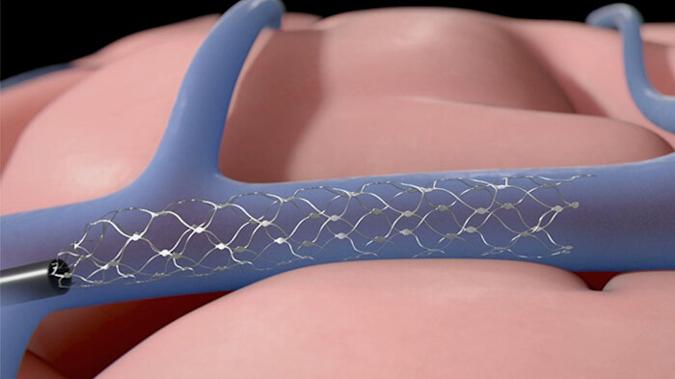Brain chips are being implanted through the jugular vein

Brain chip implants
The chips are being implanted in a minimally invasive proceedure.
NEW YORK – The new office space for Synchron, a company developing implantable neural devices, inside one of the buildings in the Brooklyn Navy Yard is massive. It's also raw and unfinished.
There's even room for a pickleball court — but we'll talk more about why pickleball is important to researchers here soon. Instead, what attracts the most attention in this room is a small device that can fit inside your hand.
It's a piece of technology already making a massive impact on health care. What is Synchron Stentrode?
Synchron's Stentrode system is implanted in the brain's motor cortex in a minimally invasive procedure via the jugular vein. Once there, it transmits brain signals to a connected computer to help people with severe paralysis send texts and e-mails, shop online and more.
"This is a life changing, It's a lifeline," Kurt Haggstron, Synchron's chief commercial officer said. He recently showed me how the device works during FOX 5's visit to the company headquarters.
"When we're able to go deep into the brain, and the thought and understanding the language that brain speaks, there's so much so many doors that's going to open up for us in the medical field," he said. "So many millions of patients that we're going to be able to help with that."
It's a technology that is capable of streaming direct thought for stroke patients or people suffering from paralysis. Think of it like Bluetooth for the brain, able to perform routine digital activities, such as texting, emailing, personal finance, online shopping, and communication.
Get breaking news alerts in the free FOX5NY News app! | Sign up for FOX 5 email newsletters
Synchron's approach is unique, by using blood vessels, requiring minimally invasive surgery.
"So in other words, you don't have to drill open the skull, in order to put this on actual brain matter itself," Haggstron said.
The company, originally based out of Australia, received a major boost recently when a major study found the device demonstrated long-term safety for the first trial patients.
It's a huge milestone in a very competitive field of science. Elon Musk, for example, created his own company called Neuralink.
But Synchron says using blood vessels to insert the device has it leading the race.
Last December, Jeff Bezos and Bill Gates invested $70 million into the company.
Which brings us back to the new lab in Brooklyn and that Pickleball court. Its purpose is to help researchers let off a bit of steam.
"What's up with the pickleball court?" I asked Haggstron.
"The best way to stimulate your mind is a little exercise," he said.
Eventually, they plan to turn the court into even more workspace. Synchron has partnered with Mt. Sinai in New York City.
They are currently looking for potential new patients.






